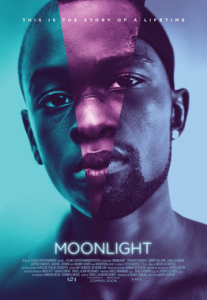The royal we—who knew it actually had a royal history? I had only heard it used in reference to couples who, upon coupling, start using “we” instead of “I” when referring to themselves. Suddenly, “I saw the movie” becomes “We saw the movie,” “I love museums” becomes “We love museums,” and so on. However, as it turns out, the royal we actually has monarchical origins. Originally, this phenomenon referred to the switching of “we” for “I’ by a monarch or person in power. According to Robert Hodge in Literature as Discourse, the use of the royal we can both signify one’s power and the transcendence of one’s own individuality.
In my opinion, this use of “we” can be manipulative. It pulls in other people who may or may not agree with the statement. Maybe someone’s partner doesn’t actually love museums or maybe a member of a society does not agree with a monarch’s actions, but they are implicated nonetheless. From now on, when I refer to the royal we I am referring to this very action—the use of “we” to pull others into and implicate them in another individual’s experience or opinion.
This “we” pops up in cultural criticism. Both Hilton Als in “‘Moonlight’ Undoes our Expectations” and Clive James in “Thrones of Blood” invoke this powerful and transcendent we. However, they each do so in very different terms to, I will argue, very different effects. Als uses “we” sparingly and startlingly, while James uses we as a workhorse pronoun, popping it into sentences time and again.
From afar, these two pieces share many similarities. Both of these pieces examine video works—Als focuses on the movie “Moonlight” and James critiques the television series “Game of Thrones.” Each critic explicitly incorporates their individual stories and perspective. Both works also like the works they are reviewing, ultimately putting them forth as worthy of the reader’s time.
And yet, their use of a single pronoun sets them apart.
In ‘Moonlight’ Undoes our Expectations,” Als takes the viewer through “Moonlight”’s exploration of black queerness, which taps into Als own experiences and also, in Als’s own words, “avoid[s] the overblown cliches so often used to represent black American life in film.” From beginning to end, Als guides us through the plot of the movie, peppering in “zoom outs” that incorporate context (like the director Barry Jenkin’s possible cinema influences), audience reactions to the film (like when utterance of “faggot” caused the audience to freeze), and personal information (like “every queer kid’s revenge fantasy”). Als manages to tell the story of “Moonlight” as a film that, on the surface, traces the evolution of a young queer black man, but, going deeper, does something radically new. It’s honest—Als shows us this.
Within Als’s sea of prose, “we” pops up sparingly. And, when it does, it is shocking. It reminds me of the first time Frank Underwood looks the viewer in the eye in “House of Cards,” implicating us in the world of Underwood, when Fleabag winks at the viewer in “Fleabag,” pulling us into a deceptively amiable friendship, or when Elliot asks if we can see what he is seeing in “Mr. Robot.” When Als writes it for the first time, it caught me off guard. In the middle of a sentence, he sneaks it in: “…we can’t help thinking…” It stopped me in my tracks—he sees me? He is welcoming me into his experience? It was shocking, yet warm. It asked me to take part. And later, when he says “…we wince…” it was like we are sitting in the screening room together. I could feel the wince, the cascading tightening sensation rolling from my eyes to my toes, as if someone had just poured ice water over my head.
Als uses the we, not coercively, but as a way to welcome the reader to sit beside him in the theater. He does not tell me what my judgments are, but what experience the movie offers.
I believe James thinks he is offering a similar gesture with his use of we. I should disclose, that unlike “Moonlight,” I have seen the work that James reviews. I am a former “Game of Thrones” enthusiast who has since grown thoroughly weary and, at times, incredibly angry with the show. I assume that this is part of the reason why James’s review irks me so much. And yet, his use of “we” keeps me from being even just pleasantly indifferent to the article.
His lengthy recap of “Game of Thrones” begins from a very touching place. James has leukemia, which has left him without “a chance,” but also without “an end date, either.” This illness has left him with downtime during which he, and sometimes he and his daughter, watch television series. It is such a touching way to frame the piece that it leaves me feeling guilty for not liking the article.
From afar, “Thrones of Blood” walks us through the series, gives us in depth introductions to several characters, traces plotlines, pinpoints artistic choices, and relates the series to a broader cinematic tradition. James uses his initial reluctance to watch the show as a way into the series. It’s clear that James then wrestles with his love of the show because he must walk us through every facet of his experience. James attempts to do too much in this article, it’s an exhaustive autopsy of the show, not a meaningful snapshot of it.
Throughout his tome, James implicates the reader time and again through the royal we and “us.” For instance, his reference to how “we click on Play All” (an option I’ve never heard of as I’m more accustomed to “Play Next” after each episode, but this a superficial infraction) trips me up, but not for long. Later, when he writes, “We felt shock when Ned Stark was decapitated, and when Tywin Lannister was killed,” I wholeheartedly agreed. I remember the swift head jerk and eye-widening these moments caused me. However, it is the barrage the sheer quantity of other we’s in the article, like “we, too” would make similar acting choices as Kit Harington, we depend on Ned Stark, “we” could not stop watching the show (an implication I strongly disagree with), “the dramatis personae contain plenty of characters we wouldn’t have minded seeing the back of,” and, in a twist of structure, “Tyrion Lannister is us,” that get exhausting.
Now, someone who loves “Game of Thrones” and strongly identifies with Tyrion Lannister may find great solace in James’s review. I, however, did not. Through his use of we and us, James implied that his observations and his opinions of the show were somehow mine too. In a show that struggles with gender, James assumes that his experience of watching a bevy of naked women was the same as my own. (After having watched the show with several men and women, I can say for certain that this is in no way guaranteed.) James’s use of we does not invite me to an experience like Als’s does, but tells me that an experience I do not recognize is my own. As an ardent contrarian, I cannot help but pull away.
Perhaps, this juxtaposition is entirely dependent on the fact that I do not like “Game of Thrones” and have not seen “Moonlight.” I am reluctant to concede this point entirely, however. Instead, I think that the fact I have seen “Game of Thrones” gives me insight into the foibles of the royal we. When it is invoked so many times, I pull back—that’s not what I think or see or feel.
When used sparingly, however, I welcomed Als use of “we” because it invited me to take a seat at the movie theater and imagine what viewing the movie could be like. Even if I had seen the movie, I think that Als’s review would maintain its friendliness by not assuming, time and again, that we have the same conclusions about the film. Again, Als does not tell me what my judgements would be, but rather what my experience could be. In comparison, James implicates me, the reader, in his own conclusions.
It seems that in both television shows and cultural criticism the use of a transcendent “we”—a “we” that forcibly implicates the viewer—is cropping up. It can be exciting to watch the fourth wall crumble and to feel welcomed into a character’s or writer’s experience. But this strategy must be used sparingly. Just as Frank Underwood does not turn to the camera after every major plot point nor should the critic call the viewer out after every observation. Pulling the reader into an experience repeatedly can get exhausting; there needs to be a balance between surrender and activation. I say, let me watch, let me wade into the critique a bit, let me find my footing in the universe you are describing, and then extend a hand asking me to sink a bit deeper. The power of the royal we demands respect, it is potent and, therefore, should be used sparingly.
The royal we brings up crucial questions in the field of criticism: how can critics draw the reader in without speaking for them? How can critics speak with conviction, but still remain aware that their opinion is not the end-all-be-all? And, finally, is there even room for these questions in criticism? Critics are not monarchs, nor are they our romantic partners. In the end, the royal we leaves me wondering: how can we define the relationship between critic and reader?



2,229 Comments
In the gymnastics event at the 2024 Paris Olympics, the beauty and precision of the movements will be the main focus. In the artistic gymnastics event, athletes from the United States are expected to win the gold medal with a total score of around 57.500, thanks to a combination of very precise technique and a very impressive routine. Athletes from Russia or Japan will probably compete closely for second and third place, with scores expected to be in the range of 56.000 to 57.000. The charming and innovative performances of these gymnasts are expected to carve out a historic moment in this competition. For more information, you can visit our website https://shotsgoal.com/
Oh my goodness! an incredible article dude. Thank you However I am experiencing situation with ur rss . Don’t know why Unable to subscribe to it. Is there anyone getting an identical rss problem? Anyone who knows kindly respond. Thnkx sule slot login
I¡¦ve read several good stuff here. Certainly value bookmarking for revisiting. I surprise how much effort you put to create one of these excellent informative site. sule slot gacor
As I website possessor I believe the content matter here is rattling wonderful , appreciate it for your efforts. You should keep it up forever! Best of luck. sule slot login
I will immediately grab your rss feed as I can’t find your e-mail subscription link or newsletter service. Do you have any? Please let me know in order that I could subscribe. Thanks. sule slot gacor
y grab your rss feed as I can’t find your e-mail subscription link or newsletter service. Do you have any? Please let me know in order that I could subscribe. Thanks. sule slot gacor
I really like this blog site, will definitely come back again. Make sure you carry on creating quality content articles. sule slot login
I surely did not realize that. Learnt some thing new these days! Thanks for that. sule slot gacor
The Aviator Game is an innovative and thrilling online gamejUh
Thank you for your site post. Jones and I are actually saving to get a new publication on this issue and your post has made all of us to save our own money. Your notions really clarified all our questions. In fact, more than what we had thought of prior to when we stumbled on your wonderful blog. We no longer nurture doubts as well as a troubled mind because you have actually attended to our own needs in this post. Thanks sule slot login
Greetings, super job, basically wasnt so busy with my searching I just read your full blog. I must say i have to express gratitude! sule slot gacor
Is this a new post? i ask because i think i read the same article a month ago on hubpages. concepteurs de site web
New players at AdmiralBetuUm
I am constantly thought about this, thank you for putting up. Tarot Print
im surpirsed this post hasnt got more attention, get some backlinks friend and move it to the top of Google. Canadian Dating Site
Hello my friend! I wish to say that this article is amazing, nice written and include almost all important infos. I’d like to see more posts like this . klikbet85
You need to take part in a contest personally of the most effective blogs over the internet. I’m going to suggest this web site! klikbet98
Do you need more quality backlinks? Is your website under-performin g on the search engines? agen toto play
Only a smiling visitant here to share the love (:, btw outstanding layout. silenziatore softair
I don’t unremarkably comment but I gotta admit thankyou for the post on this great one. adattatore silenziatore softair